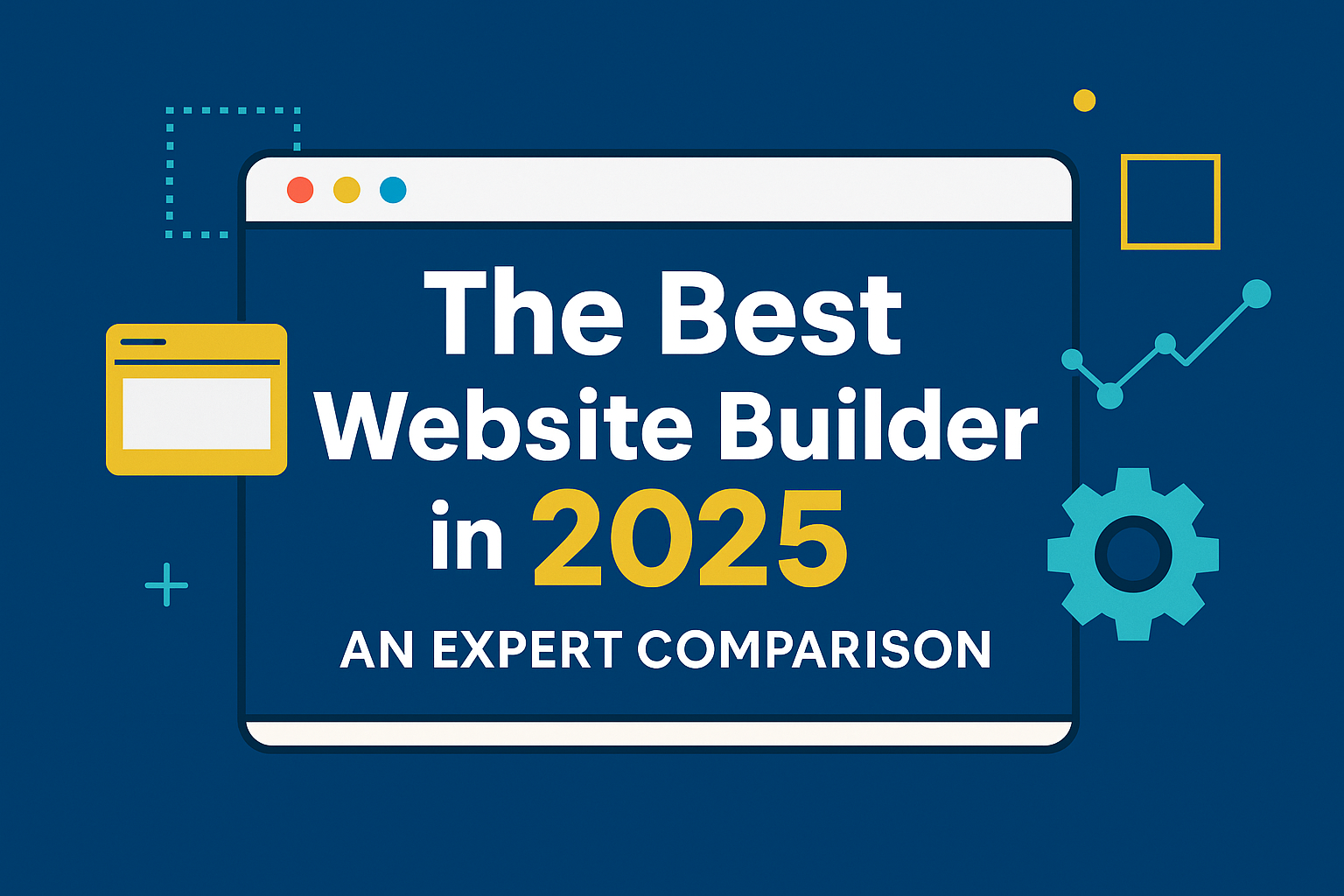Choosing the right website builder is crucial in 2025, whether you’re a beginner, small business owner, blogger, or designer. With so many options available, it can be overwhelming to decide which platform best fits your needs. Drawing from the insights shared in Metics Media’s comprehensive video review, here’s a breakdown of the top website builders this year, their standout features, and which users they’re best suited for…
Top Website Builders Compared
The video reviews and compares six leading platforms:
Each platform is evaluated based on features, pricing, and ease of use, helping you make an informed decision for your next website.
Wix: The All-Around Champion
Wix stands out as the most versatile website builder in 2025. It offers an intuitive drag-and-drop editor, over 900 templates, and robust AI tools. Wix is ideal for beginners thanks to its free version, but also scales for advanced users with paid plans that unlock more complex features. It includes SSL encryption, a free domain for the first year, and 24/7 customer support. Wix’s flexibility makes it suitable for nearly any type of website, from portfolios to online stores.
Squarespace: The Designer’s Choice
Squarespace is renowned for its visually stunning templates and design flexibility. It’s a favorite among creatives and small businesses who want a polished, professional look without needing to code. Squarespace offers strong blogging tools, integrated e-commerce, and excellent customer support. While it may have a steeper learning curve than Wix, its design-centric approach is unmatched for those prioritizing aesthetics25.
Webflow: Advanced Design and Customization
Webflow caters to designers and developers who want complete control over their site’s look and feel. It combines the ease of a visual builder with the flexibility of custom code, making it possible to create highly unique, responsive websites. Webflow is best for users with some technical background or those willing to invest time in learning its advanced features.
Shopify: The E-Commerce Powerhouse
If your primary goal is to run an online store, Shopify remains the top choice. It’s built specifically for e-commerce, offering powerful inventory management, payment processing, and a vast app ecosystem. Shopify is user-friendly but robust enough to scale with your business, making it suitable for everyone from solo entrepreneurs to large retailers.
Hostinger: Affordable and AI-Driven
Hostinger’s website builder stands out for its affordability and integrated AI features. It’s a great option for budget-conscious users who still want a modern, functional site. Hostinger bundles hosting and website building, streamlining the process for beginners and small businesses. Its AI tools help automate design and content creation, speeding up the launch process.
WordPress: The Flexible CMS
WordPress remains the most flexible platform, especially for those who want full control and scalability. While it requires more technical know-how than drag-and-drop builders, WordPress’s vast plugin ecosystem and customizable themes make it the go-to choice for bloggers, businesses, and anyone needing advanced features. It’s best paired with reliable hosting, such as Hostinger, for optimal performance.

Quick Comparison Table
| Platform | Best For | Key Features | Ease of Use | Price Range |
|---|---|---|---|---|
| Wix | Beginners, all-rounders | Drag-and-drop, AI, 900+ templates | Very easy | Free–Paid |
| Squarespace | Designers, creatives | Stunning templates, e-commerce | Easy–Moderate | Paid |
| Webflow | Designers, developers | Visual + code, advanced design | Moderate–Hard | Paid |
| Shopify | E-commerce businesses | Store management, payments, apps | Easy | Paid |
| Hostinger | Budget users, beginners | AI tools, bundled hosting | Very easy | Low–Moderate |
| WordPress | Bloggers, advanced users | Plugins, full customization | Moderate–Hard | Free–Paid |
Which Should You Choose?
- For absolute beginners: Wix or Hostinger are the easiest to start with.
- For design-focused users: Squarespace or Webflow offer superior creative control.
- For e-commerce: Shopify is purpose-built for online stores.
- For flexibility and scaling: WordPress is unmatched, provided you’re comfortable with a steeper learning curve.
Each builder has step-by-step tutorials available, making it easier to get started no matter your experience level.
Final Thoughts
The best website builder in 2025 depends on your specific needs, budget, and technical comfort. Wix continues to lead as the most versatile option, but every platform reviewed offers unique strengths. Take advantage of free trials and tutorials to find the perfect fit for your next online project


Leave a Reply